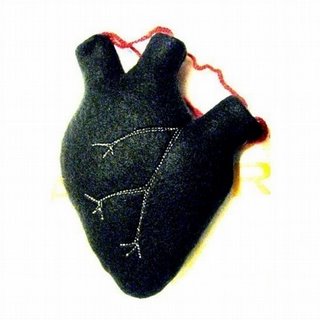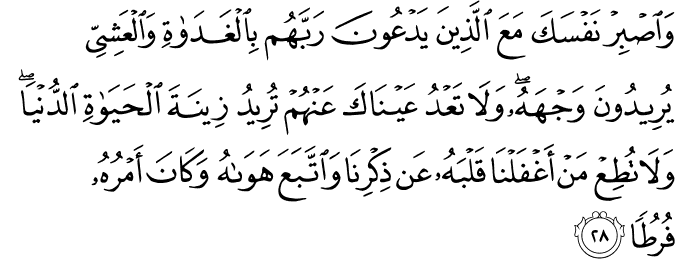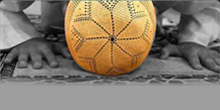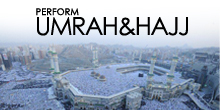It is narrated by Sayyiduna Abdullah bin Umar that the Holy Prophet (sallallahu alayhi wa sallam) said:
“When the belly of Makkah will be cleft open and through it will be dug out river-like passages (i.e. tunnels) and the buildings of the Holy City of Makkah will rise higher than its mountains, when you observe these signs, then understand that the time of trial is near at hand.”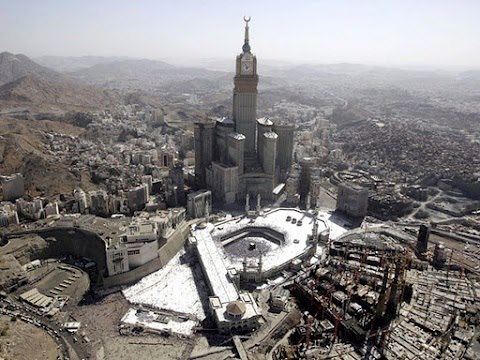
The ahadith (narrations of the Prophet, sallallahu alayhi wa sallam) are pearls of guidance and advice that are timeless in their wisdom. There are some ahadith, however, that cause the hairs on the back of your neck to stand up as you slowly peel away the onion-like layers of meaning in them. One such hadith is that quoted above; one of the many prophecies of our Prophet (sallallahu alayhi was sallam).
If one compares this hadith to a “prophecy” emanating from someone like, for example, the medieval “seer” Nostradamus, whose books of prophecies are so beloved that they have only rarely been out of print since their original publication in the 1500s, there is a stark difference. The quatrains of Nostradamus are so woolly, vague and nonspecific they can be twisted to suit any and every time – so the same prophecy has been seized upon as an example of him “predicting” everything from the French Revolution, to both world wars, to the moon landing and even the death of Princess Diana.
The above hadith prophesying the state of Makkah towards the end of time reads more like an eyewitness account from an alien-like future. No concerted attempt has ever been made in Islamic history to claim that this hadith speaks for that time… until now when, much like a camera suddenly coming into focus, we can suddenly see what our beloved Prophet (sallallahu alayhi wa sallam) was warning us about. When taken together with several other ahadith, including the famous Hadith of Jibril which speaks of the coming of the Day of Judgment being when “you see poor, naked, barefoot shepherds of sheep and goats competing in constructing tall buildings”, one sees a distinct pattern. This is especially so when combined with the current list of vainglorious monuments to the hubris of the ruling classes over much of the Arab world:
- World’s tallest skyscraper: Burj Al Khalifa, Dubai, UAE
- World’s tallest clock tower: Abraj Al Bait Towers, Makkah, Saudi Arabia
- World’s tallest lighthouse: Jeddah Light, Jeddah, Saudi Arabia
- World’s tallest minaret: Hassan II Mosque, Casablanca, Morocco.
When reading this one wonders whether those in power in those countries (or their advisors) have ever heard these ahadithand, if so, why have they gone ahead to build these follies, in most cases dedicated to their own pride?
This, however, begs the following wider question. If they are so willing to ignore the ahadith of our beloved Prophet (sallallahu alayhi wa sallam), what does that make those of us who, labouring under the collective “British Muslim” moniker, have abandoned so many ahadith. The hadith above describes the characteristics of those who build these towers; nowhere does it curse them. That is starkly contrasted to the many sound hadith regarding, for example, music:
Ali Bin Abi Taalib (radhiyallahu anhu) narrates that Rasulullah (sallallahu alayhi wasallam) said: “When my Ummah indulges in fifteen misdeeds, calamities will settle on them. Among these are singing girls and musical instruments.” (Tirmidhi)
Abu Hurairah (radhiyallahu anhu) narrates that Rasulullah (sallallahu alayhi wasallam) said: “Listening to music and singing is sinful. Sitting at such gatherings is fisq (immoral transgression). Deriving pleasure from it is kufr.” (Nailul Autaar)
Ibn Mas’ud (radhiyallahu anhu) narrated that Rasulullah (sallallahu alayhi wasallam) said: “Beware of listening to musical instruments and singing, for verily, both these acts germinate nifaaq (hypocrisy) in the heart just as water causes vegetables to grow.” (Kaf-fur Ru’aa’)
Abu Musa Ash’ari (radhiyallahu anhu) narrated that Rasulullah (sallallahu alayhi wasallam) said: “Whoever listens to the sound of singing, he will not be given permission to listen to the (beautiful) voices of the Ruhaaniyyeen in Jannat.” When it was asked: “Who are the Ruhaaniyyeen?” Rasulullah (sallallahu alayhi wasallam) said: “The Qaaris of Jannah.” (Kanzul Ummaal)
Abu Maalik Ash’ari (radhiyallahu anhu) says that he heard Rasulullah (sallallahu alayhi wasallam) say: “Most certainly, there will be in my Ummah people who will make lawful fornication, silk, liquor and musical instruments.” (Bukhaari)
Or indeed those ahadith regarding the hijab:
Ayesha (radhiyallahu anha) reported that Asma’ the daughter of Abu Bakr (radhiyallahu anhu) came to the Messenger of Allah while wearing thin clothing. He approached her and said: “O Asma’! When a girl reaches the menstrual age, it is not proper that anything should remain exposed except this and this. He pointed to the face and hands.” (Abu Dawud)
“All of a woman’s body is considered her awrah (i.e. nakedness to those outside the mahram relationship or her husband).” (al-Mar’atu `Awra)
“Women who are clothed but (at the same time) naked, turning their heads sideways this way and that like the humps of the camel, shall never enter Paradise nor even smell its fragrance.” (Muslim)
It is easy to condemn an Arab ruler who makes himself look ridiculous in his humiliating aping of western culture. We are all very vocal, laughing at their folly and their ignorance of well-known ahadith. Where, however, is the same condemnation when our own “leading lights” cast around for any sort of odd and tenuous opinion that would allow them to wiggle out of rulings on issues that the majority of scholars have deemed haram?
Indeed, whenever a hadith strongly suggests the impermissibility of something (e.g. the impermissibility for a woman to uncover her hair in public), the average reformist of Islam will cock his head at a certain angle and speak in a low, calm voice as if addressing a particularly dim-witted child as he explains that either (i) the hadith is da’eef (weak), or (ii) there are “many” ahadith supporting the opposite view, or (iii) the scholar (and I have seen them include great shuyukh of Islam up to and including Imams Malik, Shafi, Ibn Hanbal and Abu Hanifa) who came to that particular conclusion was not in receipt of all the facts and so his ruling is deficient.
We recognise the power of ahadith when we come across those like the one set out at the the top of the page. These words are from the tongue of the Prophet himself, sallallahu alayhi wasallam, and they have crossed the oceans of time awaiting their moment in order that they can describe a people so distant from ninth century Makkah and yet so desperately in need of the guidance of their beloved Rasool, sallallahu alayhi wasallam.
As we recover from the momentous idea that our beloved Prophet (sallallahu alayhi wasallam) loved us so much that he scattered his advice like pearls, throughout the ages to help us along our way, we then reflect on the reason we have this hadith – it is both a description and a warning to us:
“…when you observe these signs, then understand that the time of trial is near at hand.”
We may well be the generation that face the trials that so many of the ahadith speak of. We have the strongest armour as our protection: the Quran and the Sunnah, but they can only help us if we don them in their entirety.
يَا أَيُّهَا الَّذِينَ آمَنُوا ادْخُلُوا فِي السِّلْمِ كَافَّةً وَلَا تَتَّبِعُوا خُطُوَاتِ الشَّيْطَانِ إِنَّهُ لَكُمْ عَدُوٌّ مُّبِينٌ. البقرة: ٢٠٨
“O you who have believed, enter into Islam whole heartedly and do not follow the footsteps of Satan. Indeed, he is to you a clear enemy.” (Quran, 2:208).
May Allah make our imaan strong enough to bear these trials and guide us to His straight way. Ameen.
SOURCE: MUSLIMVILLAGE.COM


![]()
 For more information about our Ramadan Appeal, please click here.
For more information about our Ramadan Appeal, please click here.![]() “The prophetic words ‘The best of people are those who benefit people’ includes benefiting all human beings. The work of welfare and relief contributes to the success of humanity. This is a great service and a great act of worship. It is a great source of happiness that the Tauheedul Trust has established a charity. This is a very important and a beneficial step. May Almighty Allah bless this initiative.” (Mufti Muhammad Taqi Usmani)
“The prophetic words ‘The best of people are those who benefit people’ includes benefiting all human beings. The work of welfare and relief contributes to the success of humanity. This is a great service and a great act of worship. It is a great source of happiness that the Tauheedul Trust has established a charity. This is a very important and a beneficial step. May Almighty Allah bless this initiative.” (Mufti Muhammad Taqi Usmani)

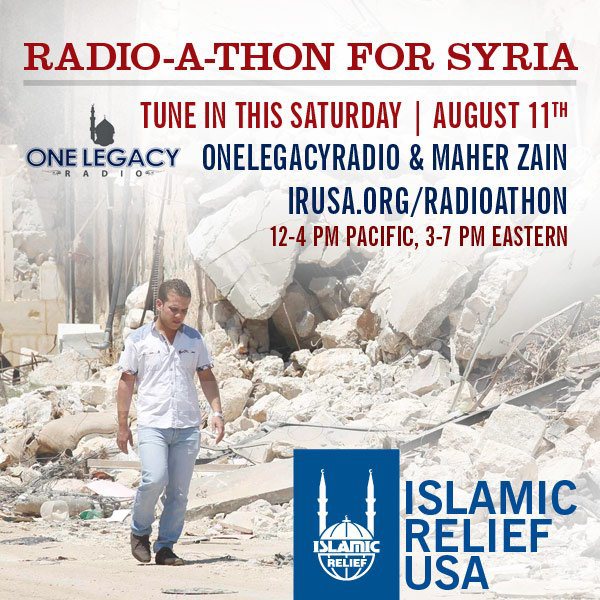 www.irusa.org/radioathon
www.irusa.org/radioathon